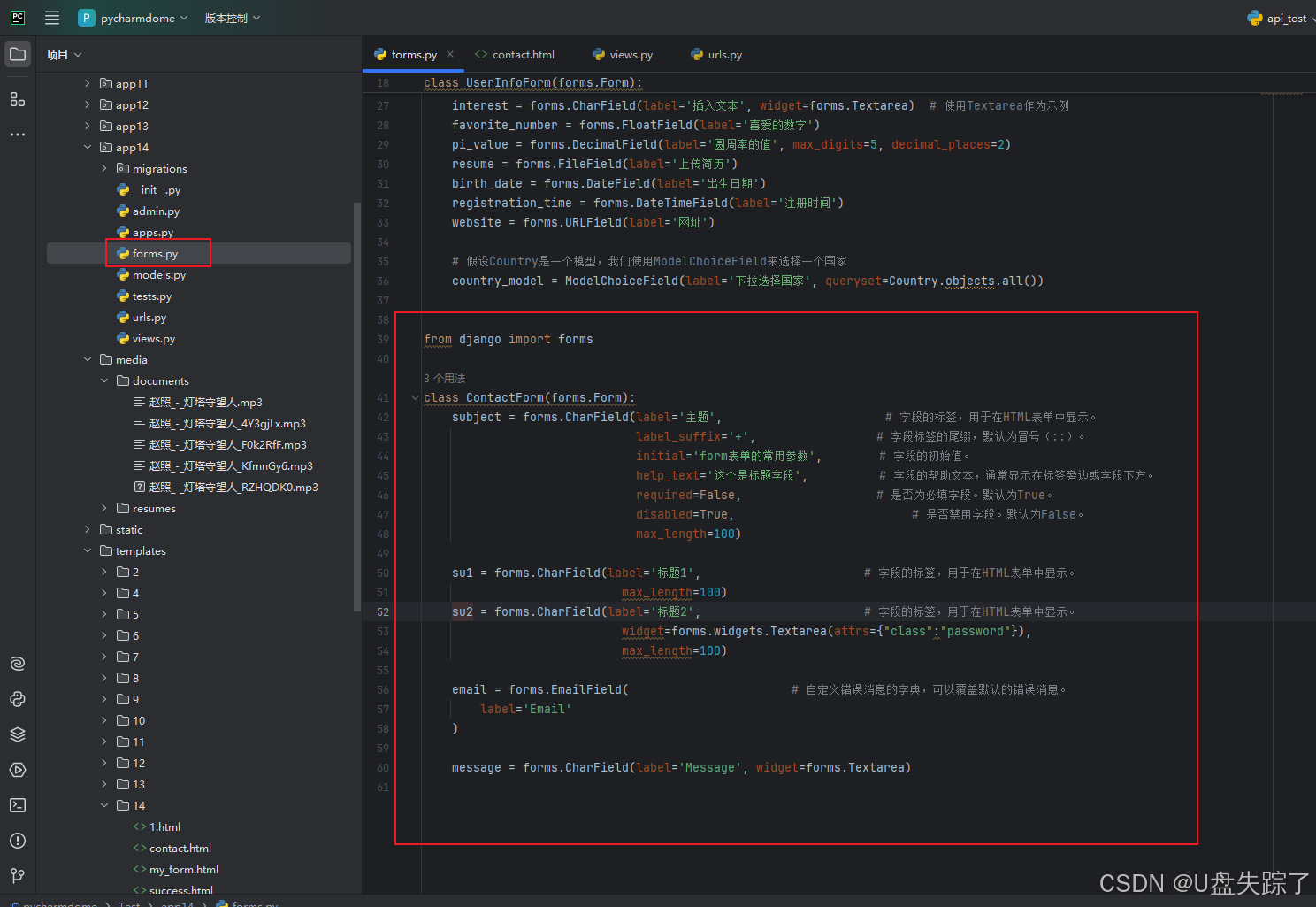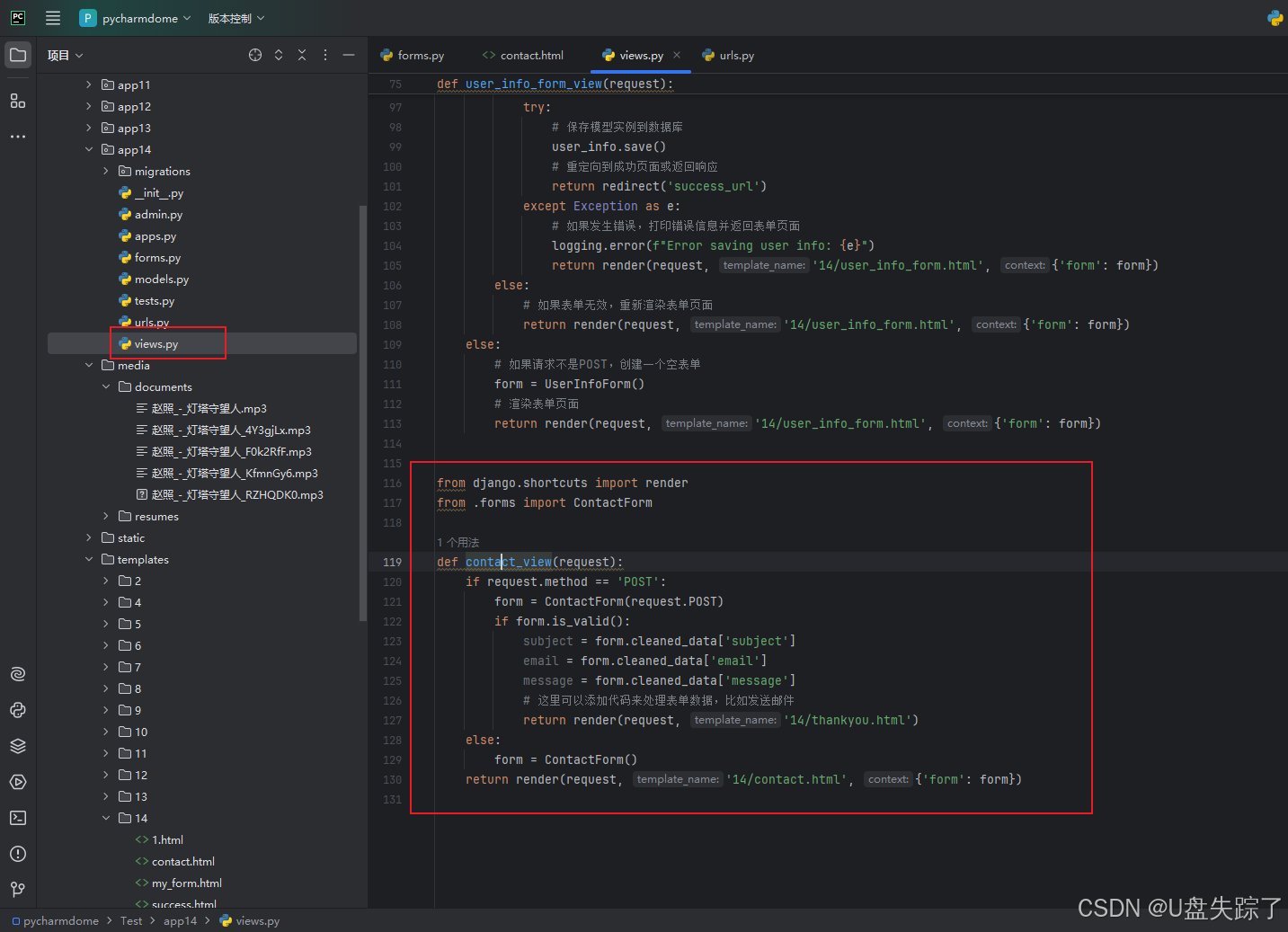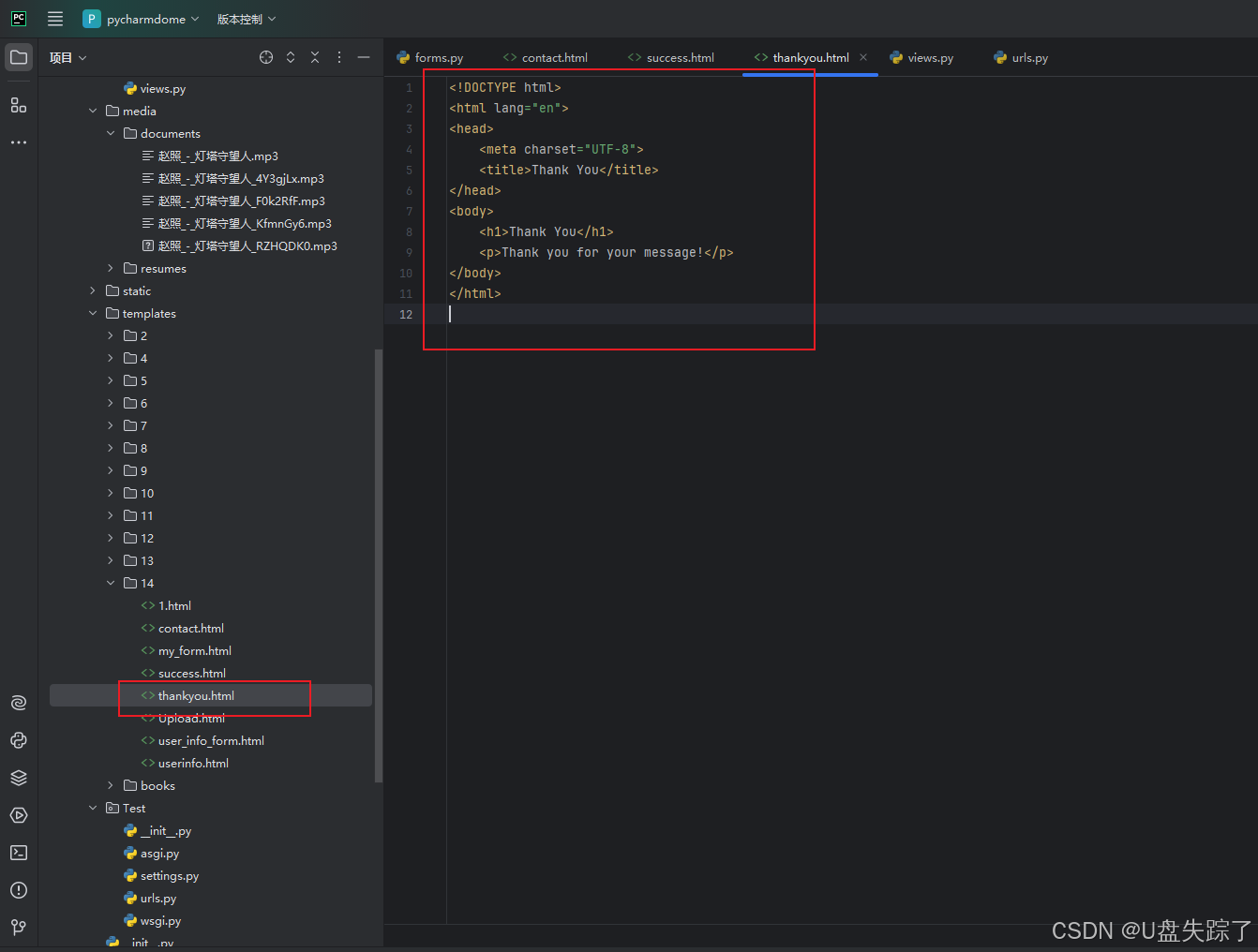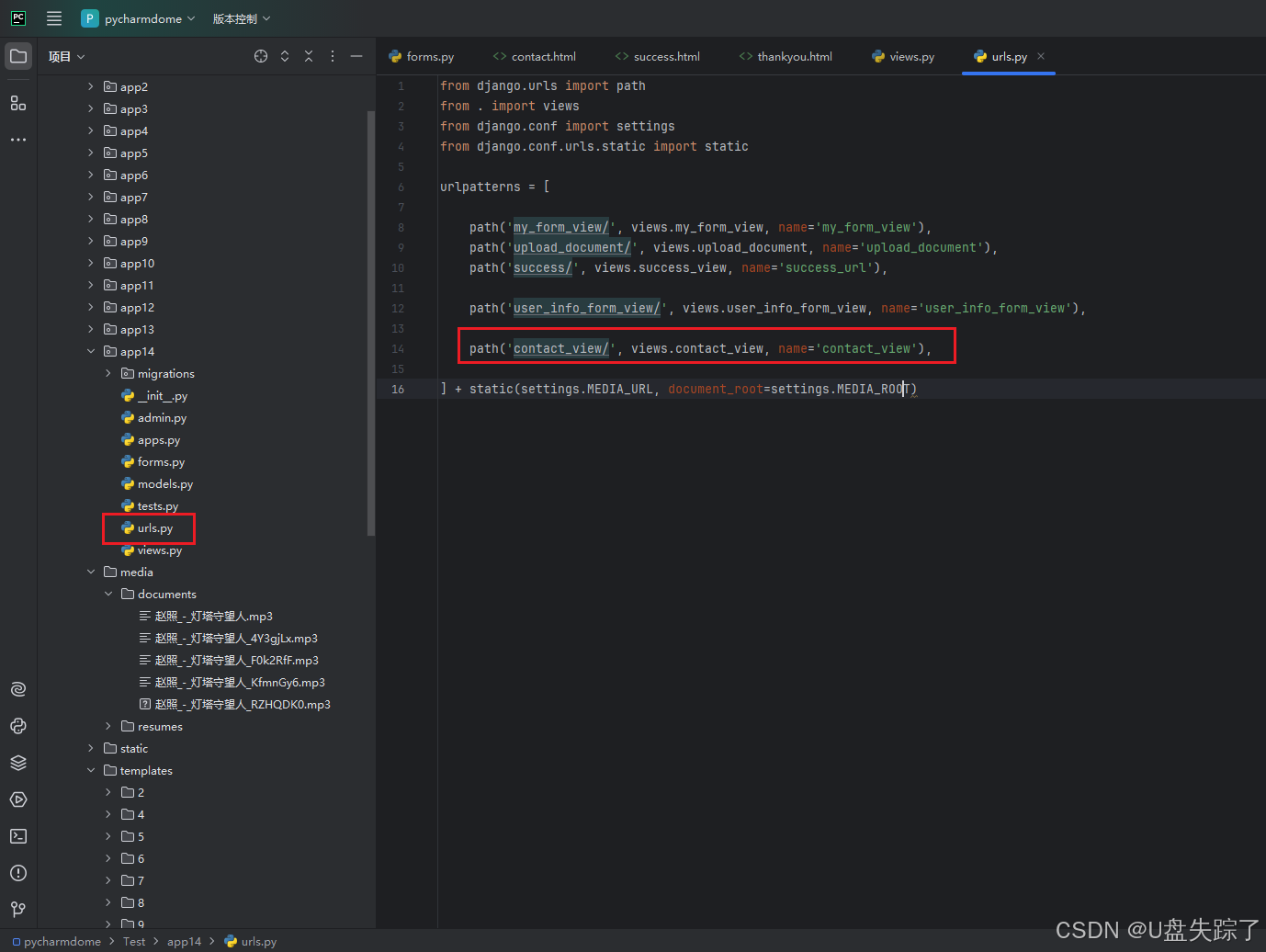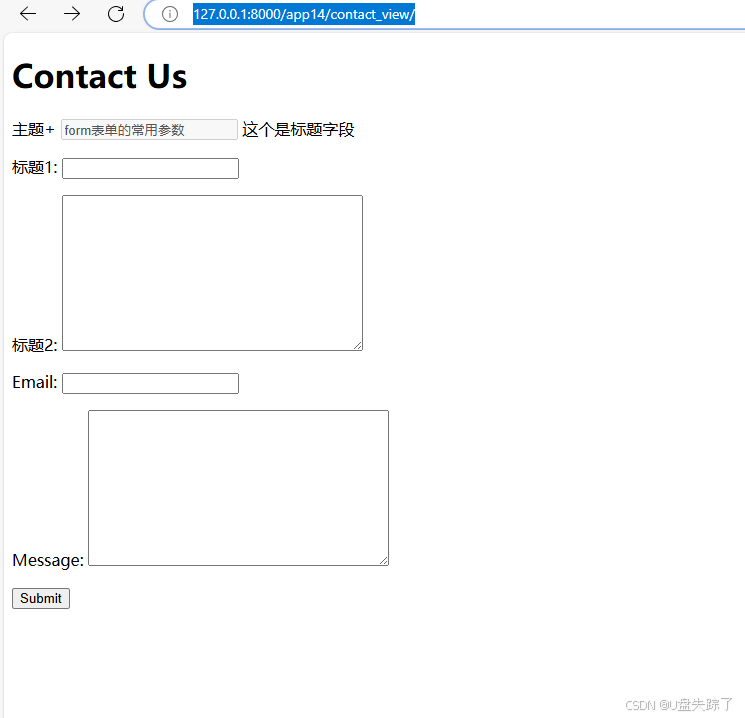在Django中,表单(Form)是用来处理HTML表单数据的重要工具。Django的表单API允许你定义表单字段及其验证规则。每个表单字段都可以通过多种参数来定制其行为。以下是一些常用的表单字段参数:
label:字段的标签,用于在HTML表单中显示。help_text:字段的帮助文本,通常显示在标签旁边或字段下方。required:是否为必填字段。默认为True。initial:字段的初始值。widget:指定用于渲染字段的HTML小部件(例如TextInput,PasswordInput,Textarea等)。validators:一个验证器列表,用于在字段验证时执行额外的检查。error_messages:自定义错误消息的字典,可以覆盖默认的错误消息。disabled:是否禁用字段。默认为False。localize:是否对字段值进行本地化处理(例如日期、时间、数字格式)。label_suffix:字段标签的尾缀,默认为冒号(::)。
1,添加表单
Test/app14/forms.py
from django import forms
class ContactForm(forms.Form):
subject = forms.CharField(label='主题', # 字段的标签,用于在HTML表单中显示。
label_suffix='+', # 字段标签的尾缀,默认为冒号(::)。
initial='form表单的常用参数', # 字段的初始值。
help_text='这个是标题字段', # 字段的帮助文本,通常显示在标签旁边或字段下方。
required=False, # 是否为必填字段。默认为True。
disabled=True, # 是否禁用字段。默认为False。
max_length=100)
su1 = forms.CharField(label='标题1', # 字段的标签,用于在HTML表单中显示。
max_length=100)
su2 = forms.CharField(label='标题2', # 字段的标签,用于在HTML表单中显示。
widget=forms.widgets.Textarea(attrs={"class":"password"}),
max_length=100)
email = forms.EmailField( # 自定义错误消息的字典,可以覆盖默认的错误消息。
label='Email'
)
message = forms.CharField(label='Message', widget=forms.Textarea)2,添加视图函数
Test/app14/views.py
from django.shortcuts import render
from .forms import ContactForm
def contact_view(request):
if request.method == 'POST':
form = ContactForm(request.POST)
if form.is_valid():
subject = form.cleaned_data['subject']
email = form.cleaned_data['email']
message = form.cleaned_data['message']
# 这里可以添加代码来处理表单数据,比如发送邮件
return render(request, '14/thankyou.html')
else:
form = ContactForm()
return render(request, '14/contact.html', {'form': form}3,添加HTML代码
Test/templates/14/contact.html
<!DOCTYPE html>
<html lang="en">
<head>
<meta charset="UTF-8">
<title>Contact Form</title>
</head>
<body>
<h1>Contact Us</h1>
<form method="post">
{% csrf_token %}
{{ form.as_p }}
<!-- {{ form.email.errors }}-->
<!-- {{ form.email.label_tag }}-->
<!-- {{ form.email }}-->
<button type="submit">Submit</button>
</form>
</body>
</html>
Test/templates/14/thankyou.html
<!DOCTYPE html>
<html lang="en">
<head>
<meta charset="UTF-8">
<title>Thank You</title>
</head>
<body>
<h1>Thank You</h1>
<p>Thank you for your message!</p>
</body>
</html>
4,添加路由地址
Test/app14/urls.py
from django.urls import path
from . import views
from django.conf import settings
from django.conf.urls.static import static
urlpatterns = [
path('contact_view/', views.contact_view, name='contact_view'),
] + static(settings.MEDIA_URL, document_root=settings.MEDIA_ROOT)5,访问页面
http://127.0.0.1:8000/app14/contact_view/
